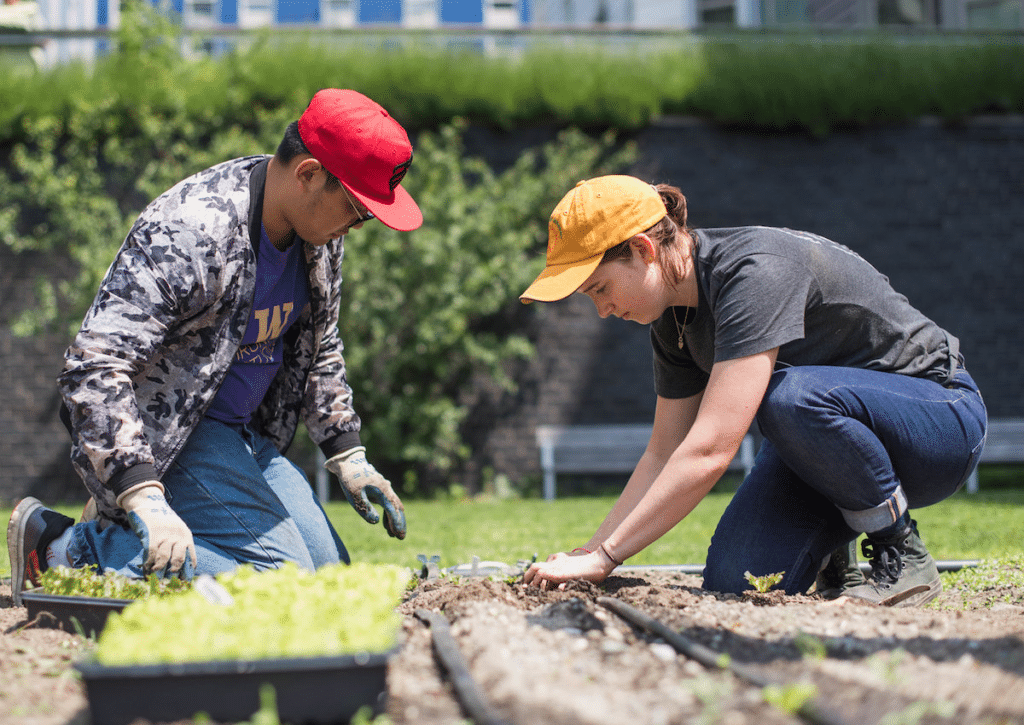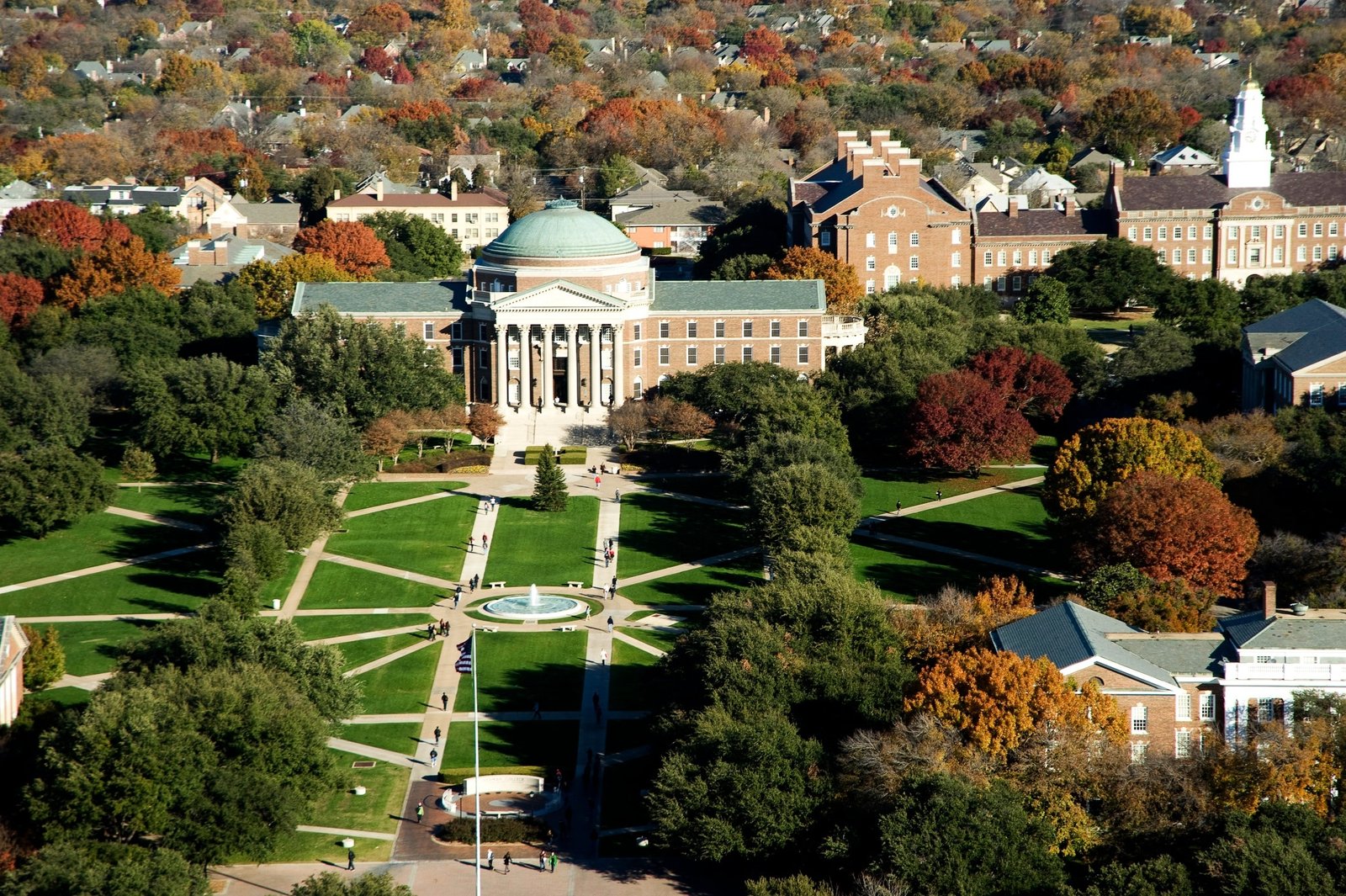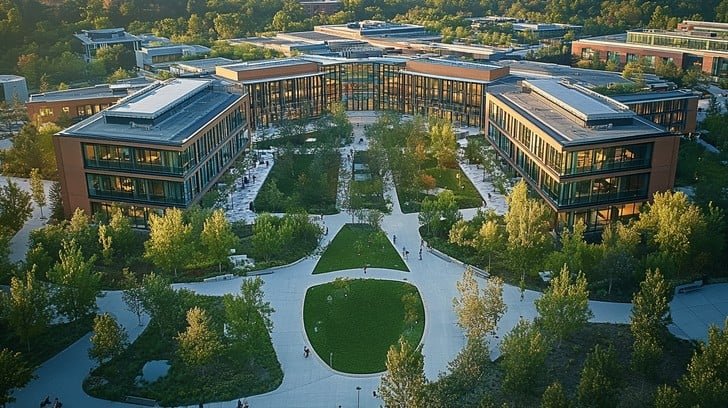Sustainability has become a critical focus for educational institutions worldwide as they recognize the urgent need to address environmental challenges. Southern Methodist University (SMU), located in Dallas, Texas, is one such institution that is actively working toward creating a more sustainable campus. SMU University Campus is taking significant steps to reduce its environmental footprint, engage students and faculty in sustainability practices, and lead by example in fostering environmental responsibility.
In this article, we will explore how SMU University is enhancing sustainability on its campus through various initiatives, innovations, and programs that benefit the university community and the environment. From green building practices to waste reduction, renewable energy, and sustainable transportation, SMU is making strides in creating a campus that not only focuses on academic excellence but also prioritizes environmental stewardship.
Key Takeaways
- Commitment to Carbon Neutrality: SMU aims for carbon neutrality by 2050, showcasing its dedication to long-term environmental sustainability.
- Green Campus Infrastructure: SMU incorporates LEED-certified buildings, energy-efficient systems, and renewable energy sources to reduce its environmental impact.
- Comprehensive Waste Management: With its zero-waste goal, SMU promotes extensive recycling and composting programs to minimize landfill waste.
- Sustainable Transportation Solutions: SMU provides a range of sustainable transportation options, including access to public transit, biking infrastructure, and EV charging stations.
- Engagement with Students: SMU fosters a culture of sustainability by engaging students through academic programs, clubs, and sustainability events that promote active involvement in environmental efforts.
SMU University Campus Commitment to Sustainability

At the heart of SMU’s sustainability efforts is its commitment to reducing the environmental impact of its campus operations. SMU recognizes the importance of sustainability not only for the well-being of the planet but also for the university’s long-term success in an increasingly eco-conscious world. The commitment to sustainability is reflected in the university’s policies, programs, and partnerships aimed at making the campus greener.
SMU is a signatory of the American College & University Presidents’ Climate Commitment (ACUPCC), which sets a bold goal for universities to achieve climate neutrality. This commitment places pressure on universities to develop and implement sustainability initiatives that address climate change and reduce overall carbon emissions. SMU has committed to becoming carbon-neutral by 2050, making it a key player in the university’s sustainability strategy.
Sustainable Building Practices
A cornerstone of SMU’s sustainability efforts is its focus on sustainable building practices. The university has incorporated green design principles into its construction and renovation projects to ensure that buildings are energy-efficient, environmentally friendly, and built with sustainable materials.
LEED-Certified Buildings
SMU is working to meet LEED (Leadership in Energy and Environmental Design) standards for its new and renovated buildings. LEED certification is a globally recognized symbol of sustainability, indicating that a building has met rigorous environmental and energy-efficient standards.
One example is the George W. Bush Presidential Library and Museum, which achieved LEED Silver certification. The building features energy-efficient systems, water conservation measures, and the use of sustainable materials throughout its construction. This is just one example of how SMU is integrating green building practices into its infrastructure to create a sustainable campus environment.
Energy Efficiency and Water Conservation
SMU has implemented a number of energy-efficient measures to reduce its energy consumption, including installing energy-efficient lighting systems, HVAC systems, and insulation materials. The university is also focused on water conservation by installing low-flow fixtures in restrooms and using drought-tolerant landscaping around campus buildings. These measures help reduce the university’s environmental impact while also leading to significant cost savings.
Renewable Energy Initiatives
SMU is actively working to incorporate renewable energy sources into its campus operations to reduce its reliance on fossil fuels. The university is focused on harnessing clean, renewable energy from sources such as solar and wind power to help reduce greenhouse gas emissions and achieve its climate neutrality goals.
Solar Power Installation
SMU has made significant investments in solar power, including the installation of solar panels on the roofs of several campus buildings. These panels generate clean energy that powers the campus, reducing the university’s reliance on traditional energy sources. The solar power installations are part of SMU’s broader initiative to reduce its carbon footprint and promote sustainability.
Renewable Energy Purchases
In addition to installing solar panels, SMU also purchases renewable energy through contracts with renewable energy providers. By doing so, the university supports the growth of the renewable energy market and reduces its carbon footprint, helping to drive the transition to a more sustainable energy grid.
Waste Reduction and Recycling Programs
Reducing waste and promoting recycling are essential components of SMU’s sustainability strategy. The university has implemented a comprehensive waste management program aimed at diverting waste from landfills and encouraging recycling across campus.
Comprehensive Recycling Initiatives

SMU has set up recycling stations in high-traffic areas across campus, including classrooms, dormitories, and administrative buildings. The recycling stations make it easier for students, faculty, and staff to dispose of paper, plastic, metal, and glass in an environmentally responsible manner. SMU has also focused on reducing paper waste by encouraging digital communication and administrative tasks that minimize paper usage.
Zero-Waste Goal
As part of its waste reduction strategy, SMU has set a goal of becoming a zero-waste campus. The university aims to divert at least 90% of its waste away from landfills through comprehensive recycling, composting, and waste diversion programs. This goal is ambitious but reflects SMU’s commitment to sustainability and responsible resource management.
Composting Programs
SMU has introduced composting programs that collect organic waste from dining facilities and other areas of campus. The compost is used to enrich soil in campus gardens, further supporting SMU’s sustainability efforts and reducing the need for chemical fertilizers.
Sustainable Transportation
Transportation is a significant contributor to a university’s carbon footprint. At SMU, the administration is committed to promoting sustainable transportation options that help reduce emissions and encourage environmentally friendly commuting practices.
Public Transit Partnerships
SMU offers students and staff free access to public transportation in Dallas through a partnership with the Dallas Area Rapid Transit (DART) system. This initiative encourages the use of public transportation over driving personal vehicles, helping to reduce traffic congestion and air pollution.
Bike-Friendly Campus
SMU has made significant improvements to its campus to accommodate cyclists, including bike racks, bike lanes, and shower facilities for those who commute to campus by bike. The university also promotes cycling as a sustainable mode of transportation through events like “Bike to Campus” day and offering discounted bike rentals.
Electric Vehicle Charging Stations
To further promote sustainability in transportation, SMU has installed electric vehicle (EV) charging stations across its campus. These stations make it easier for those with electric vehicles to charge their cars while reducing the university’s overall reliance on fossil fuels.
Engaging Students and Faculty in Sustainability
In order to foster a culture of sustainability, SMU actively engages students, faculty, and staff in sustainability efforts. By involving the entire university community, SMU ensures that sustainability is woven into the fabric of university life and academic endeavors.
Sustainability Education
SMU offers numerous courses and degree programs related to sustainability, including majors and minors in Environmental Studies, Sustainable Business, and Green Engineering. These programs equip students with the skills and knowledge to tackle global environmental challenges and become leaders in sustainability fields.
Sustainability Clubs and Organizations

Students at SMU have the opportunity to join sustainability-focused clubs and organizations, including the Environmental Society and the Green Team. These organizations are dedicated to promoting sustainability on campus, hosting events, and participating in community outreach programs that raise awareness about environmental issues.
Sustainability Events and Initiatives
Throughout the year, SMU hosts sustainability-themed events such as Earth Day celebrations, sustainability fairs, and green speaker series. These events serve to educate the campus community about sustainability practices and encourage active participation in the university’s sustainability initiatives.
Sustainability in Dining Services
SMU’s dining services are also committed to sustainability through efforts such as sourcing local, organic, and seasonal foods, reducing food waste, and implementing composting programs.
Farm-to-Table Dining
SMU’s dining services partner with local farms to provide fresh, sustainably sourced food to students. By focusing on local sourcing, the university reduces the environmental impact of food transportation while supporting local agriculture and reducing carbon emissions.
Food Waste Reduction

SMU has implemented food waste reduction strategies, including the use of trayless dining and portion control, to minimize food waste in its dining halls. Additionally, the university works with food recovery programs to donate unused food to local charities, further supporting its sustainability efforts.
Collaboration with Local Communities
Sustainability at SMU extends beyond the campus borders. The university is actively involved in collaborative initiatives with local organizations, businesses, and other academic institutions to promote broader environmental changes across the city of Dallas. This includes the development of joint programs focused on renewable energy, sustainability education, and urban greening projects.
- Community Sustainability Initiatives: SMU collaborates with local community groups to promote sustainable urban development. One such initiative includes partnerships with organizations that focus on urban farming and community gardens, which help reduce food miles and encourage local food systems.
- Student-Led Community Outreach: SMU’s sustainability clubs and organizations also work with local schools, neighborhoods, and nonprofits to bring sustainability efforts into the wider community. Students organize educational campaigns and sustainability workshops, promoting eco-friendly habits among local residents and businesses.
SMU’s Role in Sustainable Research and Innovation
SMU is a recognized hub for sustainable research and innovation. The university’s focus on research helps not only to advance academic knowledge but also to implement practical solutions for environmental issues. SMU provides students and faculty with the tools and resources necessary to develop new, sustainable technologies and systems that can benefit both the local community and the broader world.
- Sustainable Innovation Research Centers: The university is home to research centers focused on sustainability, such as the Lyle School of Engineering’s Center for Sustainability. This center fosters innovation in green technology, renewable energy, and sustainable construction, providing opportunities for students to work on projects that address pressing environmental challenges.
- Collaboration on Clean Technology: SMU has also established partnerships with clean tech firms and organizations to foster the development of new technologies that will play a key role in solving environmental problems. These partnerships enable the university to translate research into practical, scalable solutions for businesses and government agencies alike.
SMU Sustainability Plan and Performance Metrics
To guide its sustainability journey, SMU developed a Sustainability Master Plan, which outlines the university’s short- and long-term sustainability goals. The plan serves as a blueprint for integrating sustainability into every aspect of university operations and provides a comprehensive framework for continuous improvement.
- Performance Metrics and Reporting: The university tracks and reports its progress toward sustainability goals by using specific performance metrics. This includes monitoring energy consumption, waste diversion rates, water usage, and carbon emissions. The metrics help ensure that SMU is meeting its objectives and allows the university to adjust its efforts as needed.
- Regular Sustainability Audits: SMU conducts regular audits to assess the environmental impact of its campus operations. The audits ensure that the university remains on track with its sustainability goals and identifies areas where further improvements can be made.
Green Landscaping and Campus Ecosystems
SMU takes pride in its campus’s beautiful green spaces, which contribute to both the aesthetic and environmental qualities of the university. Beyond traditional landscaping, SMU is focusing on creating sustainable ecosystems on campus that promote biodiversity, water conservation, and native plant growth.
- Native Plant Landscaping: SMU’s landscaping efforts prioritize the use of native plants that require fewer resources, such as water and fertilizers, than non-native species. These plants help support local wildlife and enhance the university’s commitment to sustainable land management.
- Rainwater Harvesting Systems: SMU has implemented rainwater harvesting systems throughout campus to collect and reuse rainwater for irrigation and landscaping. This helps conserve potable water and reduces the university’s environmental footprint.
- Urban Biodiversity: The university has committed to integrating more biodiversity into its campus environment. SMU has worked to ensure that its campus is a haven for native birds, pollinators, and insects by planting more diverse plant species and preserving green spaces.
Sustainable Campus Food Systems

One of SMU’s primary objectives is to ensure that its food systems are both sustainable and healthy. This not only reduces the environmental impact but also supports the well-being of students and the surrounding community.
- Farm-to-Table Dining: SMU’s dining services have built strong partnerships with local farmers to offer a farm-to-table dining experience that minimizes the environmental cost of food transportation. The university also emphasizes seasonal and locally-sourced food to further reduce its carbon footprint.
- Plant-Based Options: The university offers a variety of plant-based meals at its dining facilities, making it easier for students to adopt more sustainable eating habits. Plant-based diets have been proven to have a significantly lower environmental impact compared to meat-heavy diets.
- Reducing Food Waste: SMU dining services prioritize food waste reduction by working with food banks and food recovery programs to donate surplus food. Students are also encouraged to participate in sustainability challenges that promote mindful eating and minimize food waste.
Sustainability in Campus Events
SMU aims to incorporate sustainability into every event it organizes, from large academic conferences to student-led initiatives. The goal is to host events that minimize waste, reduce energy consumption, and make a positive environmental impact.
- Zero-Waste Events: SMU has committed to hosting zero-waste events, where all materials used are either composted, recycled, or reused. This reduces the amount of waste that ends up in landfills and promotes a culture of sustainability at all levels of the university.
- Eco-Friendly Event Supplies: The university also encourages event organizers to use sustainable supplies, such as recyclable materials for promotional items, biodegradable food containers, and reusable event signage.
- Sustainability Speakers and Panels: SMU frequently hosts sustainability-themed events that bring thought leaders and experts to campus. These events are designed to raise awareness about environmental issues, showcase innovative solutions, and foster a greater sense of responsibility within the university community.
Also Read: What Are The Best On-Campus Housing Options At Purdue University?
Conclusion
SMU University has shown a strong commitment to sustainability through its wide-ranging initiatives aimed at reducing its environmental footprint and promoting eco-friendly practices on campus. From energy-efficient buildings and renewable energy integration to waste reduction, sustainable dining, and student engagement, SMU is creating a culture of sustainability that empowers students, faculty, and staff to take part in building a more sustainable future.
The university’s focus on green building practices, waste management, and renewable energy highlights its dedication to long-term sustainability. By continuing to implement forward-thinking programs and fostering an eco-conscious campus community, SMU sets an example for other educational institutions and demonstrates how universities can play a pivotal role in addressing the environmental challenges of our time.
FAQs
What sustainability goals has SMU set for its campus?
SMU has committed to achieving carbon neutrality by 2050 and reducing its environmental impact through green building practices, renewable energy use, waste reduction, and sustainable transportation initiatives.
How is SMU reducing its energy consumption?
SMU has implemented energy-efficient systems, such as LED lighting, smart HVAC systems, and insulation, and is working to integrate renewable energy sources like solar power to reduce energy consumption on campus.
What is SMU’s approach to waste management?
SMU has established comprehensive recycling and composting programs, with the goal of becoming a zero-waste campus by diverting 90% of its waste from landfills.
How can students get involved in sustainability efforts at SMU?
Students can get involved by joining sustainability clubs, participating in green events, enrolling in sustainability-focused courses, and volunteering for campus-wide initiatives aimed at promoting sustainability.
Does SMU offer electric vehicle charging stations?
Yes, SMU has installed electric vehicle (EV) charging stations around campus to support the use of electric cars and reduce the university’s reliance on fossil fuels.
What sustainable transportation options are available to SMU students?
SMU provides students with free access to public transportation via a partnership with DART, and the campus is bike-friendly with bike lanes, racks, and shower facilities. The university also supports sustainable commuting by offering EV charging stations.
How is SMU promoting sustainable dining?
SMU’s dining services focus on sourcing local and organic foods, reducing food waste, and implementing composting programs to create a more sustainable food system on campus.





